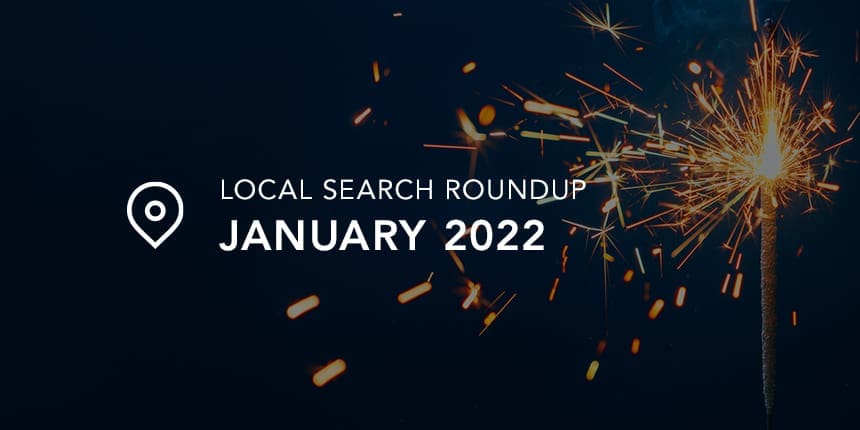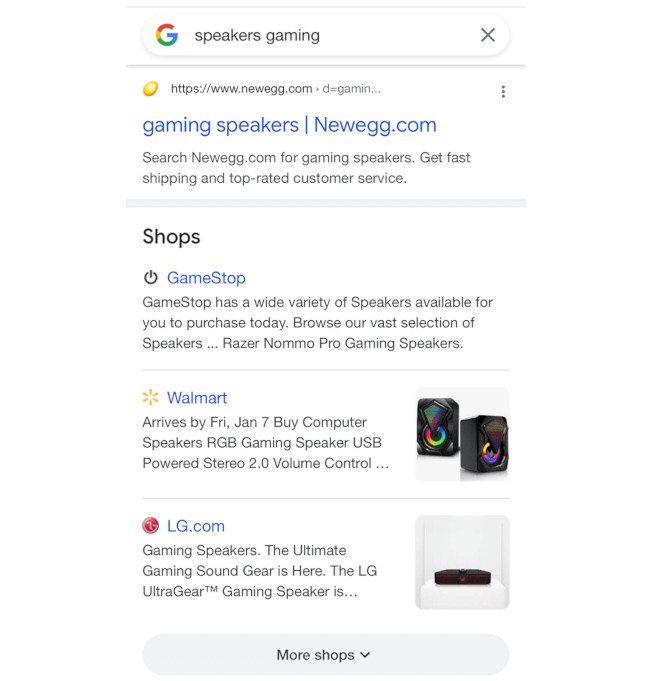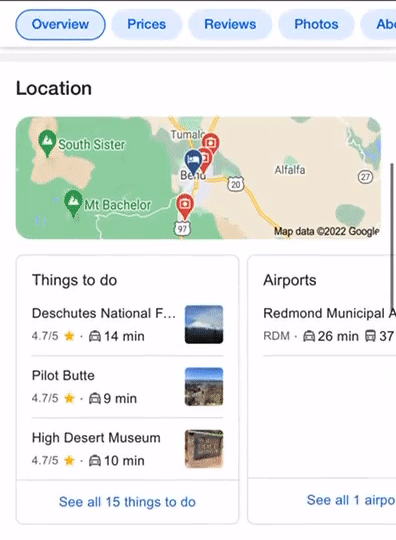
 Google-business-profile-enhances-se...
Google-business-profile-enhances-se... 
Time moves like lightning in local search, and there are already plenty of new developments in the first month of the year. Once again, it’s time to double check those Google Business Profile (GBP) updates and SERP shake-ups. Join us on our review of the news highlights from January 2022.
Making GBP secure: new seven-day wait for new Owner and Manager profiles
Watch out, marketing managers: With cybersecurity risk on the rise, there’s a new security update for GBP that calls for some patience. When a new user is added to GBP, they must wait seven days before they can alter information or take certain profile actions. Why the slowdown? This security hurdle is intended to curb accidental or otherwise unauthorized users from gaining management permissions and then vandalizing profiles. While the waiting period may seem like a barrier for businesses trying to speedily add new users, it does safeguard this important customer touch point from being the target of bad actors.
Google’s new help document has been updated to note the new seven-day waiting period. New Owners or Managers will get an error if they attempt any of the following:
- Delete or restore a profile
- Remove other Owners or Managers from a profile
- Transfer primary ownership of a profile to themselves or a third-party user
- Use an existing Owner or Manager profile to transfer primary ownership to a new Owner or Manager still in their first seven days
If the new Owner or Manager deletes their account within the first seven days, they’re removed from the profile. If they later restore their account, they must be added to the profile again.
Google adds “Shops” section to search results
The past two years have seen Google pushing hard to become the shopping destination of the internet. To that end, we’ve seen updates that keep users in the Google world for purchases. The search giant’s most recent shopping expansion is the launch of a “Shops” section in mobile search results. This section shows up to 10 retailers depending on available inventory. Everything is based on proximity and organic search rankings, but these shopping-related queries are currently limited to users and geographies within the US.

Image: Search Engine Roundtable
Google has also moved many of its paid shopping offerings to free product listings in order to increase vendor adoption. The new “Shops” mobile tab sees this trend continue as Google tries to increase its share in the online shopping marketplace—competing with Amazon while still benefiting retailers and shoppers alike. Retailers will gain free exposure while shoppers will see a more robust catalogue because of the removed paywall for businesses to participate.
Change coming to the Automotive industry: Cars for sale on GBP?
Looking for a new ride? Along with general improvements to online shopping through Google, the search engine is piloting a new feature for one of the highest ticket items available: cars. Select car dealers can now promote their inventory on their profiles. Google users can search, filter, and easily learn more about cars for sale via sale inventory information provided by car dealerships or their authorized partners.

GIF: Google
This program is currently in the testing stage but anyone can apply to implement the feature. Google’s Cars for Sale Interest Form is open for applicants who wish to participate.
Highlight your top products with GBP’s new “Mark as Special” option
Google Products are available for many business categories, and they’re not limited to physical products purchased and shipped online. Businesses such as computer repair shops can list the specific types of help they offer directly in their business knowledge panel. Google now allows these profiles to mark some of these products as “special” for top billing products and services either permanently or temporarily.
Checking the “Mark as Special” box causes the selected items to appear at the top of the profile’s list of products. Users can select multiple products as special, prioritizing all selected products before any others. Products are sorted in the same order as they were prior to being marked as special if multiple are given this top billing at the same time.
Google enhances its “Things to do” feature
Taking to the air, rails, or roads, travelers may see new local information from Google. Google is testing a new layout that shows things to do at airports and transit stops based on user’s location. It’s been a journey since Google announced the “Things to do” feature two years ago, but now it has expanded to new areas. The feature once only connected to hotels and their surrounding attractions, but now extends to the ways users reach their destinations.

GIF: Search Engine Roundtable
If your business operates at one of these transit stops, securing a proper listing on Google is more important than ever. After all, the captive audiences at airports and train stations are more likely to look down at their phones than the physical signage surrounding them. To compete with the other restaurants, stores, or entertainment options at these locations, your business must be visible on Google.
It’s only the beginning of the year, but it’s never too early to enhance your local search performance. Find out how our people, processes, and platforms can take your local marketing to the next level. Let’s chat!

